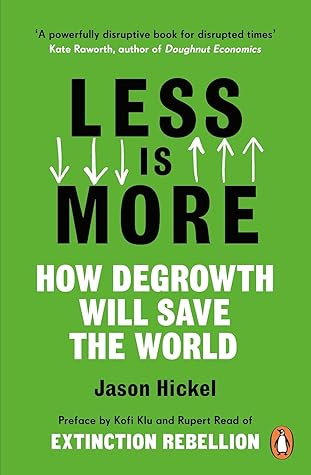More on this book
Community
Kindle Notes & Highlights
by
Jason Hickel
Read between
August 23 - September 3, 2023
These remarkable interdependencies – trees, fungi, humans and bacteria – are only the very tip of the iceberg. Ecologists are finding them literally everywhere. There is not a single ecosystem on the planet where species don’t interact in mutually enriching ways.
Nothing exists alone. Individuality is an illusion. Life on this planet is an interwoven mesh of relational becoming.
The British scientist James Lovelock and his American collaborator Lynn Margulis have described the Earth as a superorganism, which automatically self-regulates in a manner that maintains the conditions for life, just as the human body self-regulates to keep internal systems in functional balance. This is the Gaia hypothesis, so named after the goddess of the Earth in Greek mythology. And indeed these findings from Earth-systems science and biogeochemistry would not be surprising to peoples who have long regarded the Earth as a living being, or even as a mother.
There’s nothing necessarily unethical about harvesting crops or cutting down trees, they say – or even hunting and eating animals, for that matter. What’s unethical is to do so without gratitude, and without reciprocity. What’s unethical is to take more than you need, and more than you give back. What’s unethical is exploitation, extraction and, perhaps worse still, waste.
Better yet, we can switch to methods that don’t just minimise harm, but actively regenerate ecosystems. This is where the reciprocity part comes in; and it’s where things get particularly exciting.


